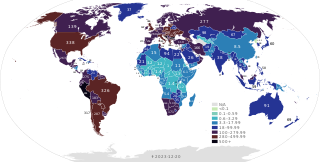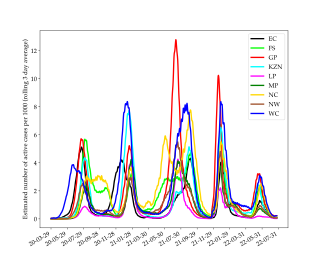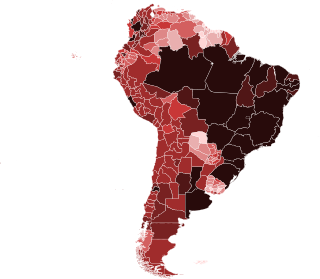Mandate
| | This section is empty. You can help by adding to it. (April 2021) |
The Coronavirus Commission was a Norwegian government commission to conduct a review and assessment of the management of the COVID-19 pandemic by the Norwegian authorities. The commission was appointed on 24 April 2020 and is led by Stener Kvinnsland.
The Commission submitted its report to Prime Minister Erna Solberg on 14 April 2021. [1]
| | This section is empty. You can help by adding to it. (April 2021) |
The following is a list of the members of the Coronavirus Commission: [2]
| | This section is empty. You can help by adding to it. (April 2021) |
Jan Fridthjof Bernt criticised the 'extensive secrecy' surrounding the commission's work. [3]
Representatives from the Labour Party, the Centre Party, and the Socialist People's Party were also critical. [4]

Jonas Gahr Støre is a Norwegian politician who has served as the 36th prime minister of Norway since 2021 and has been Leader of the Labour Party since 2014. He served under Prime Minister Jens Stoltenberg as Minister of Foreign Affairs from 2005 to 2012 and as Minister of Health and Care Services from 2012 to 2013. He has also been a Member of the Storting for Oslo since 2009.

Tina Bru is a Norwegian politician for the Conservative Party. From 2020 to 2021, she served as the Minister of Petroleum and Energy. She was elected to the Storting from Rogaland in 2013 and became a member of the Standing Committee on Energy and the Environment. She was reelected to the Storting for the period 2017–2021, and continued as a member of the Standing Committee on Energy and the Environment.

The COVID-19 pandemic, also known as the coronavirus pandemic, is an ongoing global pandemic of coronavirus disease 2019 (COVID-19) caused by severe acute respiratory syndrome coronavirus 2 (SARS-CoV-2). The novel virus was first identified in the Chinese city of Wuhan in December 2019; a lockdown in Wuhan and other cities in surrounding Hubei failed to contain the outbreak, and it quickly spread to other parts of mainland China and around the world. The World Health Organization (WHO) declared a Public Health Emergency of International Concern on 30 January 2020, and a pandemic on 11 March 2020. Multiple variants of the virus have emerged and become dominant in many countries since 2021, with the Alpha, Beta, Gamma and Delta variants being the most virulent. As of 28 November 2021, more than 261 million cases and 5.19 million deaths have been confirmed, making the pandemic one of the deadliest in history.

This article provides a general overview and documents the status of locations affected by the severe acute respiratory syndrome coronavirus 2 (SARS-CoV-2), the virus which causes coronavirus disease 2019 (COVID-19) and is responsible for the COVID-19 pandemic. The first human cases of COVID-19 were identified in Wuhan, the capital of the province of Hubei in China in December 2019.

The COVID-19 pandemic has had far-reaching consequences beyond the spread of the disease itself and efforts to quarantine it, including political, cultural, and social implications.

The article contains the number of cases of coronavirus disease 2019 (COVID-19) reported by each country, territory, and subnational area to the World Health Organization (WHO) and published in WHO reports, tables, and spreadsheets. For more international statistics in table and map form, see COVID-19 pandemic by country and territory. As of 29 November 2021, 261,075,046 cases have been stated by government agencies from around the world to be confirmed.

The global COVID-19 pandemic arrived in Europe with its first confirmed case in Bordeaux, France, on 24 January 2020, and subsequently spread widely across the continent. By 17 March 2020, every country in Europe had confirmed a case, and all have reported at least one death, with the exception of Vatican City.

The COVID-19 pandemic in the United Kingdom is part of the worldwide pandemic of coronavirus disease 2019. The virus reached the UK in late January 2020. As of 11 November 2021, there had been 9,637,190 confirmed cases and 145,167 deaths among people who had recently tested positive – the world's 26th highest death rate by population, the most overall cases, and the second-highest death toll in Europe after Russia, and the world's 7th highest death toll. There has been some disparity between the outbreak's severity in England, Scotland, Wales and Northern Ireland – health-care in the UK is a devolved matter. Each constituent country has its own publicly-funded healthcare system operated by devolved governments.

The COVID-19 pandemic in Norway, also known as the coronavirus disease 2019 pandemic in Norway, is part of the ongoing worldwide pandemic of coronavirus disease 2019 caused by severe acute respiratory syndrome coronavirus 2. On 26 February 2020, the virus was confirmed to have spread to Norway. The number of cases increased rapidly during the month of March, thereby necessitating a number of safety measures aiming to achieve physical distancing to be introduced on 12 March. The first death attributed to COVID-19 was documented on the same day. Most confirmed cases that were traced to outside Norway were Norwegian tourists returning from Austria and Italy.

The COVID-19 pandemic in Portugal is part of the pandemic of coronavirus disease 2019 caused by severe acute respiratory syndrome coronavirus 2. On 2 March 2020, the virus was confirmed to have reached the country when it was reported that two men, a 60-year-old doctor who travelled to the north of Italy on vacation and a 33-year-old man working in Spain, tested positive for COVID-19. On 16 March 2020, the first death from COVID-19 was reported in Portugal.

The COVID-19 pandemic in Cameroon is part of the worldwide pandemic of coronavirus disease 2019 caused by severe acute respiratory syndrome coronavirus 2. The virus was confirmed to have reached Cameroon on 6 March 2020.

The COVID-19 pandemic in South Africa is part of the ongoing pandemic of coronavirus disease 2019 (COVID-19) caused by the severe acute respiratory syndrome coronavirus 2 (SARS-CoV-2).

The COVID-19 pandemic was confirmed to have reached South America on 26 February 2020 when Brazil confirmed a case in São Paulo. By 3 April, all countries and territories in South America had recorded at least one case.

The COVID-19 pandemic has impacted politics, both international and domestic, by affecting the governing & political systems of multiple countries, causing suspensions of legislative activities, isolation or deaths of multiple politicians and reschedulings of elections due to fears of spreading the virus. The pandemic has triggered broader debates about political issues such as the relative advantages of democracy and autocracy, how states respond to crises, politicization of beliefs about the virus, and the adequacy of existing frameworks of international cooperation. Additionally, the pandemic has, in some cases, posed several challenges to democracy, leading to it being undermined and damaged.

The COVID-19 pandemic in Antarctica is part of the worldwide pandemic of coronavirus disease 2019 caused by severe acute respiratory syndrome coronavirus 2. Due to its remoteness and sparse population, Antarctica was the last continent to have confirmed cases of COVID-19 and was one of the last regions of the world affected directly by the pandemic. The first cases were reported in December 2020, almost a year after the first cases of COVID-19 were detected in China. At least 36 people are confirmed to have been infected. <noinclude>Even before the first cases on the continent were reported, human activity in Antarctica was indirectly impacted.

The COVID-19 pandemic and its spread in Europe has had significant effects on some major EU members countries and on European Union institutions, especially in the areas of finance, civil liberties, and relations between member states.
The COVID-19 pandemic in American Samoa is part of the ongoing worldwide pandemic of coronavirus disease 2019 caused by severe acute respiratory syndrome coronavirus 2. The COVID-19 pandemic was confirmed to have reached the unincorporated United States territory of American Samoa on 9 November 2020.
The COVID-19 pandemic was confirmed to have reached the Sahrawi Arab Democratic Republic in July 2020. There are 33 confirmed cases in the eastern part of Western Sahara controlled by the Sahrawi Arab Democratic Republic.
The Chinese government has actively engaged in disinformation to downplay the emergence of COVID-19 in China and manipulate information about its spread around the world. The government also detained whistleblowers and journalists claiming they were spreading rumors when they were publicly raising concerns about people being hospitalized for a "mysterious illness" resembling SARS.
Several COVID-19 commissions have been proposed to examine national responses to the COVID-19 pandemic.